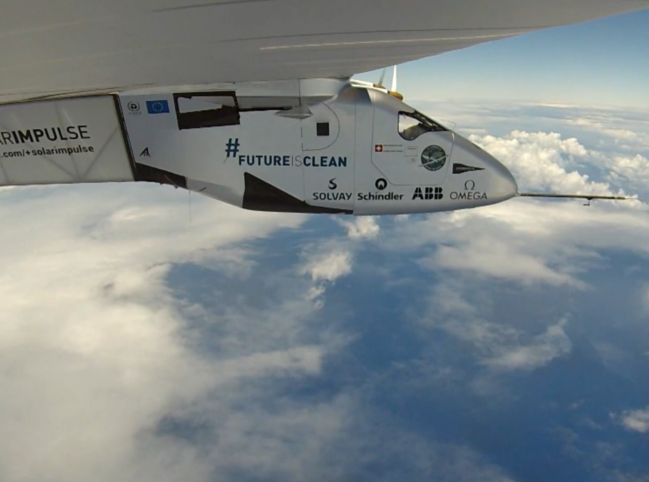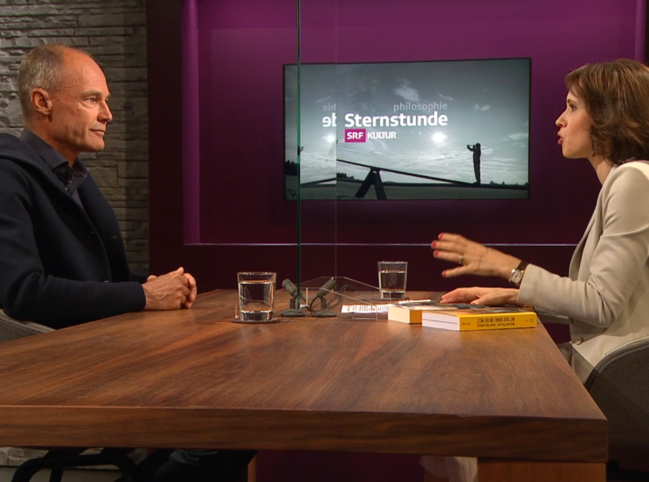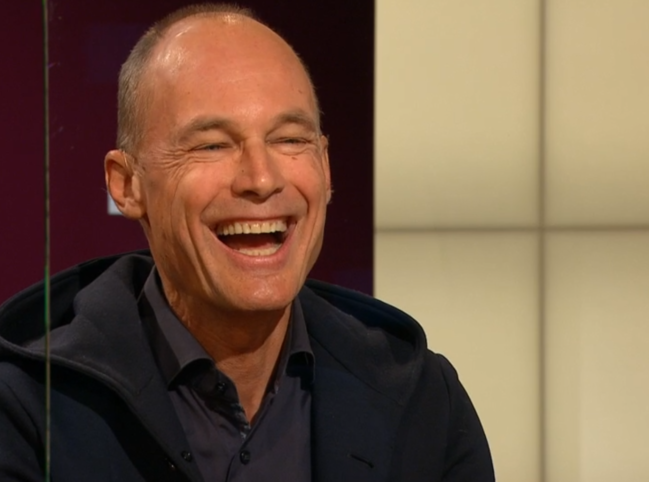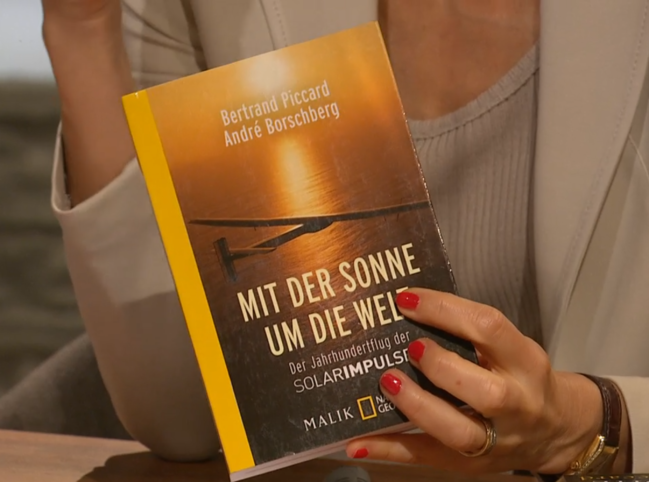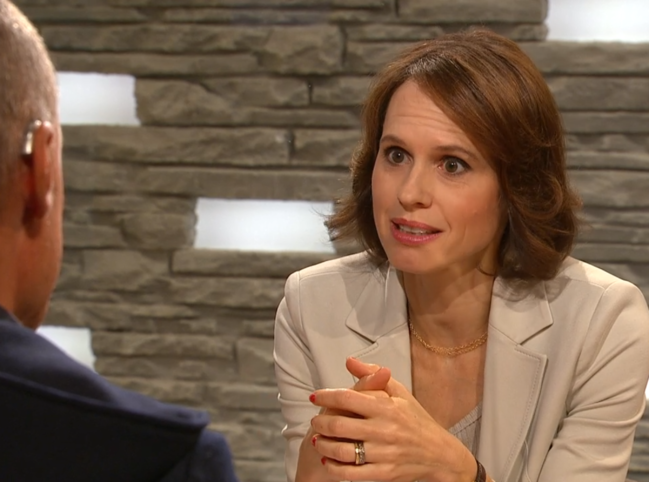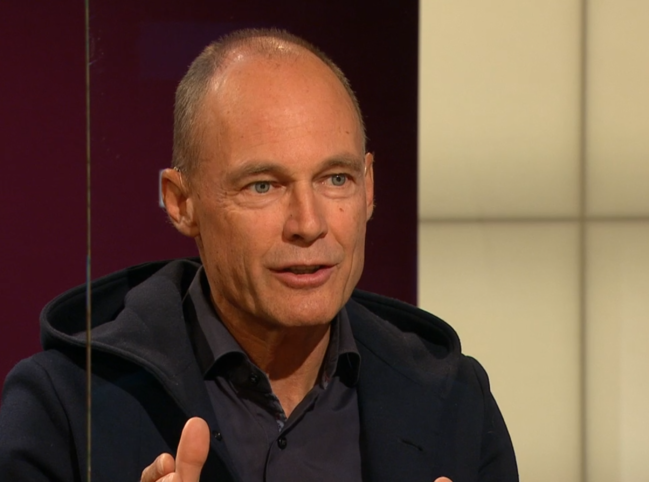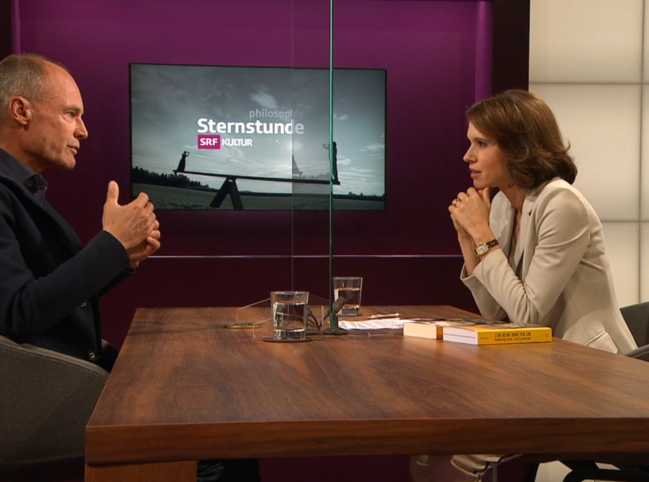“After several days and nights all alone in the cockpit of Solar Impulse, I naturally know what isolation is. In the Breitling Orbiter 3 it was even 20 days, but I spent them with my co-pilot. There are two ways to live such a confinement: Either one longs for the end and counts the hours and days in expectation of a better future, which is tantamount to a terrible torture because time passes so infinitely slowly. Or one concentrates entirely on the moment, the momentary experience, by listening to his thoughts and becoming aware that one is alive. This is how you move with time, it loses all meaning. With the end of the isolation you are then surprised how quickly time has passed. Whether in the capsule of a hot-air balloon, a solar airplane or in your home during the curfew due to the corona virus. This is very similar. Imagining the future is a lot harder than living in the moment.”
“We usually focus our attention outward, on what we see, hear, feel and smell. Under hypnosis you turn this attention inwards and become aware of yourself and your breathing. Now you can face your feelings, fears and worries. After emerging from hypnosis, you can immediately apply your experiences from the visualization. The safe place is important in this process. An inner place of safety and security. You can lose everything in your life, so it is important to anchor something in your inner being that nobody can take away from you.”
“I am not proud to have flown around the world in a solar airplane, but to have built this project despite all the problems during 15 years. Things didn’t go as planned and there were many moments of frustration and disappointment. No big dream comes true by itself. This is true for everything you wish and hope for in life. To achieve a dream requires a lot of work. Maybe today we have forgotten how to work hard for something, to take responsibility, to make decisions and to accept the possibility of failure. It is precisely the fear of failure and being laughed at by others because of it that keeps many people from tackling something. Fortunately, I failed several times early in my life. I have become accustomed to the mockery of others. When the desire for something grabs me, I do not hesitate. The worst thing is not to have failed, but not to have tried.”
“Instead of fighting to achieve the impossible, one could use life and the winds one cannot control, and accept the uncertain. Those who think in only one way are driven in only one direction. Different ways of life open up only through different ways of thinking. When we throw off the ballast of our certainties, life views and habits, we discover all the different altitudes in life and can finally choose the way of thinking that carries us in the desired direction. Even in unfavourable wind conditions we can change the altitude. Also today with the corona virus. In the face of the pandemic we are limited, it brings the economy to its knees without us being able to do anything about it, but by flying at a different altitude we can take a different direction and see what we can achieve. We must take advantage of the elements of a crisis and learn what we can do better after the crisis.”
“You change your altitude by asking yourself how you have worked until then. […] But the desire for change alone will not help. As long as you remain at the same altitude in your thinking, you are blocked. But if you allow new ways of thinking, questioning yourself and thinking about how you could react differently, a number of new paths will open up. Now you have a choice.”
“I believe we seek security on the outside, although the greater danger is to become prisoners of our traditional ways of thinking. What we learned in the past may have been useful then, but things are always in flux. We have learned to resist any change and to want to regain our accustomed security. But most changes are irreversible. Suppose you have lost your job. Of course you can sue your employer and perhaps you will win in court and return to your job. But there you are now hated. Relations with colleagues have become difficult. Although you actually won, your life has become hell. Or you may ask yourself, what other work can I find now? Maybe you will learn a new language, do another training and find a job that is possibly better than the old one. That is what it means to throw off your ballast and get a job that is better than the old one.”
“We were taught to hold on to certainties and habits and to always fly at the same altitude and in the same direction. When the winds of life turn, we are lost, because we do not know how to deal with the unpredictable. We should change that. We should understand that the uncertain, questions and doubts are powerful sources of inspiration for our creativity, imagination and performance. In a routine situation you are not efficient. You lack attention, you’re on autopilot. If you switch off the autopilot, you are initially a little lost and helpless in the face of the unfamiliar situation. Suddenly you are forced to question yourself and discover that trust is much more important than courage. Courage may help to fight fear. But if you trust your resources, you will understand that in a very difficult situation, all your creativity, efficiency and potential are at your disposal. You can call up everything inside you and try to succeed.”
“Encounters are very important in life. Be it a meeting with a teacher at school, a neighbour, someone in the family, a friend or a chance acquaintance. You need to be open to encounters that challenge you and offer alternatives. Sometimes a life succeeds thanks to such role models that set an example, a footballer or actor. In my case it was the astronauts and the pioneers of flight. To strive for something like that is possible for everyone. Of course there are extremely difficult circumstances. If you have nothing to eat and drink, you can’t deal with philosophical questions. But here perhaps the responsibility of those who have been lucky in life comes into play. One must help others, one must help them to express themselves. Such help is not limited to cash benefits. Help means feeling pity, being respectful, giving advice. […] So anyone who has had the good fortune to be able to develop in life has the duty to help others to develop and to do something for them.”
“Today’s corona crisis is an adventure in the sense that it takes us out of our world and puts us in an extraordinary situation. We have the choice to find all this horrible and reject it. Then we suffer and are depressed and the terrible crisis comes true. Or we tell ourselves: The world was previously unstable, fragile, unjust, polluted and dangerous. What kind of world do we want to build today? So that this crisis becomes something extraordinary, a creative adventure. We could give economic and financial aid to companies under certain conditions, ensuring that the reconstruction of the economy becomes sustainable, cleaner, more efficient, more environmentally friendly. A world in which everything works is difficult to change. However, today nothing is working anymore. This gives us the extraordinary opportunity to build a world that will be better than the world before. So changing the altitude means using the crisis to emerge stronger, not at lower levels or at the same altitude as before.”
“Our world is headed for zero risk. But the complete avoidance of risk is dangerous. Dealing with risks teaches us to be more alert, more focused and more efficient. That’s what keeps us going. The greatest risk in life is never to take a risk.”
“More important than all balance, planes, crises or adventures is the question what you want to do with your life and what meaning you give to it. If you think that you come from nowhere and go to nowhere and that the goal of life is to be rich and happy, the slightest crisis will kill you. But if you understand that you come from somewhere – without knowing where – and that you go somewhere – without knowing where – and that the purpose of life is to develop yourself and to become involved through more wisdom, kindness, compassion and positive life energy, then a meaning behind all religious currents and philosophies, whose statements hardly differ from each other, opens up. Almost all of them say that we should expand our consciousness, compassion, wisdom and life energy in order to evolve, so that we can find ourselves in a world with less duality, conflict and suffering.”
Excerpt from the interview «Eine Krise ist ein Abenteuer, das man ablehnt» with Bertrand Piccard by Barbara Bleisch, Sternstunde Philosophie
Not everything can be planned. The Corona crisis hit us all unprepared, our current situation is like flying blind. The adventurer and psychiatrist Bertrand Piccard knows how to deal with the unpredictable and setbacks like no other. Barbara Bleisch meets him for a talk.
Giving up is not Bertrand Piccard’s thing. He once crashed into the Mediterranean Sea in his Breitling Orbiter balloon, and had to abort a second flight over China. It was only the third time that the balloon circumnavigated the earth and thus broke the world record. Even with his “Solar Impulse” airplane he had to suffer repeated setbacks before the 42,000 km around the globe were completed.
For the pioneer of the skies it is clear: “The adventure is a crisis that one accepts, and a crisis is an adventure that one rejects.” For the trained psychiatrist, our view of things is the real stumbling block. Barbara Bleisch in conversation with one of the greatest adventurers of our time on the question of how we leave old patterns of thought, draw creativity from crises and become pioneers of our own lives.
Interview «Eine Krise ist ein Abenteuer, das man ablehnt», Sternstunde Philosophie
Books by Bertrand Piccard (in German)
Die richtige Flughöhe (2017)
Mit der Sonne um die Welt (2019)
Credits
Quotes, description and pictures: Sternstunde Philosophie mit Barbara Bleisch vom 27.5.2020
Post created by
Laura Hilti, Kunstverein Schichtwechsel

